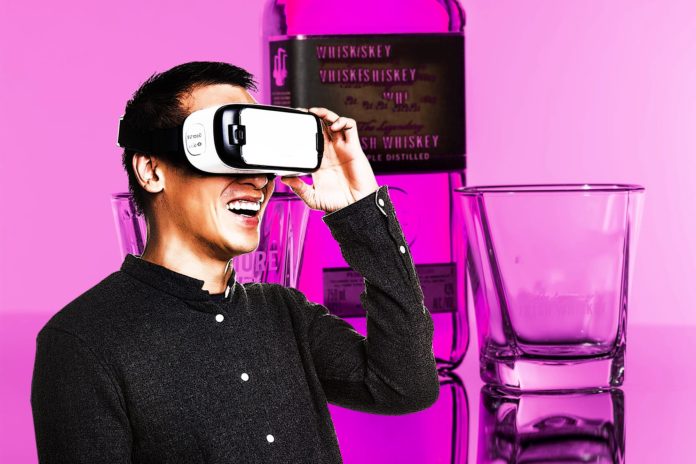
Virtual reality therapy has been shown to help alcoholics
fight their addiction. VR treatment exposes patients to simulated situations
that would normally trigger anxiety or cravings in a safe and controlled environment.
One of the reasons advocates of the therapy say it is effective is that it
allows treatment to be individualized for each person. The situations that each person is exposed to
are specific to the environments that are most likely to lead to alcohol
use.
In one study, following a week long detox, subjects were
exposed to three virtual situations while practicing coping strategies to help
them tolerate physiological and psychological cravings (Son, Lee, Seok, Kee,
Lee, Kim, & Han, 2015). The first situation
was a relaxing scenario. The second situation utilized a restaurant scenario
involving other who were drinking alcohol. The third situation was an aversion
scenario which included the sights, smells and sounds of others getting sick
after drinking too much. Participants
underwent two virtual reality sessions a week for five weeks. PET and CT scans evaluating changes in brain
metabolism showed decreased cravings for alcohol following treatment completion
compared to control subjects.
Although this study was only a preliminary investigation
with a small number of subjects it does provide important implications. First, it suggests that those with alcohol
dependence have an increased sensitivity to stimuli that trigger alcohol use
which can be observed in their limbic system.
This offers a potential method of evaluating pre and post treatment
levels of cravings, which can help control for the low reliability of
self-report measures.
The study results also suggest a potential treatment that
uses exposure in life-like situations that can be administered and controlled in
a therapeutic environment. Exposure has
been repeatedly shown to be the most effective method of preventing relapse for
alcohol use disorder. Avoiding high risk
situations involving alcohol consumption may be recommended in the initial
stages of therapy, but it is rare that this strategy can be maintained. Alcohol use is wide spread in our society and
is often a part of socializing and celebrations. It is therefore, very difficult
to continue to completely avoid situations and environments that include
alcohol use. Since these situations
often include the triggers that have led to a person imbibing in the past,
unless they can work on maintaining sobriety in these high risk situations,
relapse will be likely when exposed to these situations in the future.
However, it is also extremely risky to have the individual
expose themselves to high risk situation in the absence of therapeutic support
as would be done with other behavioral difficulties. Virtual reality allows those with alcohol
dependence to practice coping techniques for resisting alcohol use in life-like
scenarios. While cognitively the
individual knows the situation isn’t real, the physiological findings suggest
that this method may still successfully help to reprogram the brain when in
real life situations. This could improve
response to treatment as decreased physiological cravings could help the
individual resist psychological cravings making cognitive behavioral techniques
more effective with quicker results.
There are critics of the use of virtual reality treatment
for alcohol and drug abuse. Some have
stated that studying how the brain reacts during the scenarios would be crucial
in understanding any neurological outcomes that may result. This can only be determined with MRI’s and
other imaging techniques requiring the individual to be completely still, which
is not possible when using virtual reality methods. Some researchers also
question whether the use of VR treatment could make symptoms worse for some
individuals due to the realistic nature of the treatment. Larger studies carried out using subjects of
different ages, backgrounds and gender are needed to further investigate the
effectiveness of virtual reality treatment for alcohol dependence and how
individual characteristics effect treatment outcomes.
See this link for a video of how virtual reality is being
used to treat a host of mental health difficulties and disorders.
References
della Cava, M. (2016, February 6). Virtual reality’s
promise, risk loom large for health researchers. Retrieved from
http://www.usatoday.com/story/tech/news/2016/02/02/virtual-reality-promise-and-concerns-both-loom-large-researchers/79360096/
Son, J. H., Lee, S. H., Seok, J. W., Kee, B. S., Lee, H. W.,
Kim, H. J., & Han, D. H. (2015). Virtual reality therapy for the treatment
of alcohol dependence: a preliminary investigation with positron emission
tomography/computerized tomography. Journal of studies on alcohol and drugs,
76(4), 620-627.
No comments:
Post a Comment